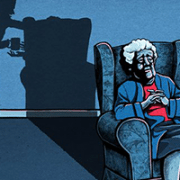If You Have No Children, Who Will Care For You When You’re Old?
/in family, Social Engagement /by adminFew of us are immune from the anxiety that can quickly set in when we contemplate our own ageing. Who will be there for us when us can no longer physically take care of ourselves? Who will be around to remind us of who we were in our moments of lucidity when our minds have started slipping away? For those of us who don’t have children, these questions take on a particular significance. I had mixed feelings after watching Still Alice, an Oscar-winning depiction of early-onset dementia. It made for grim viewing. But it was easy to imagine the ways it could have been even grimmer: what if the protagonist, Alice, had no children, a partner long departed or divorced, or friends who had drifted away?
4 Lessons from the Longest-Running Study on Happiness
/in family, Friends, marriage, Sightlines in the News, Social Engagement /by adminHave you ever wished you could fast-forward your life so you could see if the decisions you’re making will lead to satisfaction and health in the future? In the world of scientific research, the closest you can get to that is by looking at the Harvard Study of Adult Development — a study that has tracked the lives of 724 men for 78 years, and one of the longest studies of adult life ever done.
Good Genes are Nice, But Joy is Better
/in family, Social Engagement /by adminWhen scientists began tracking the health of 268 Harvard sophomores in 1938 during the Great Depression, they hoped the longitudinal study would reveal clues to leading healthy and happy lives. They got more than they wanted. After following the surviving Crimson men for nearly 80 years as part of the Harvard Study of Adult Development, one of the world’s longest studies of adult life, researchers have collected a cornucopia of data on their physical and mental health.
Want to Live Longer? Choose Family Over Friends
/in family, Social Engagement /by adminMaybe blood really is thicker than water. A recent study from the University of Chicago found that people who had close relationships with family members lived longer than those who had close relationships with friends. Researchers with the National Social Life, Health, and Aging Project, which surveyed around 3,000 people born between 1920 and 1974, asked participants who were between the ages of 57 and 85 to list up to five people they are close with. Five years later, when the researchers followed up, they found that people who included more family members in their list, as opposed to, say, friendships, were less likely to have died in the interim.





